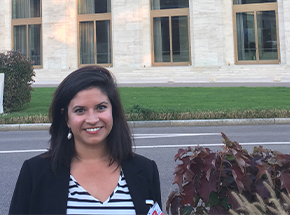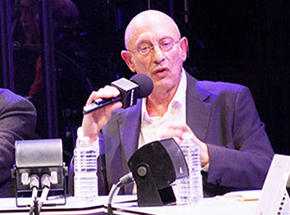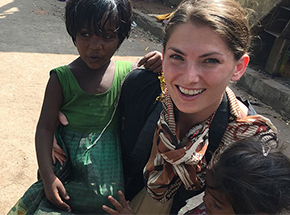- About AUP
- History of AUP
- Mission & Core Values
- Vision and Leadership
- AUP Recognition
- Alumni Success
- Campus Development
- Arts at AUP
- Policies & Guidelines
- Academics
- Undergraduate
- Graduate Programs
- MA in Diplomacy and International Law
- MA in Global Communications
- MSc in Human Rights and Data Science
- MA in International Affairs
- MA in International Affairs, Conflict Resolution, and Civil Society Development
- MSc in International Management
- MSc in Strategic Brand Management
- Find Your Thesis Advisor
- Previous Programs
- Cultural Program
- Faculty
- Summer School
- Research Centers
- The Center for Critical Democracy Studies
- The Center for Writers and Translators
- The George and Irina Schaeffer Center for the Study of Genocide, Human Rights and Conflict Prevention
- The Joy and Edward Frieman Environmental Science Center
- The Center for Media, Communication & Global Change
- Departments
- Academic Resources
- Academic Affairs
- Academic Calendar
- Academic Resource Center
- Library
- Registrar's Office
- Teaching and Learning Center
- Employer Network
- Accessibility & Accommodation Services
- Quai D'Orsay Learning Commons
- Paris as Classroom
- ACE Center
- Admissions
- Student Life
- Campus
- Student Leadership & Involvement
- Paris
- Support Services
- Student Development Help Desk
- Student Accounting Services
- Student Immigration Services
- Student Grievance Procedure
- Diversity and Inclusion
- Health & Well-being
- Digital Student Handbook
- News
- Events
- AUP Giving
- Housing Offer for 2024-2025
- Housing | Spring 2024
- IRIS Project
- IT Services
- Alumni
- About AUP
- History of AUP
- Mission & Core Values
- Vision and Leadership
- AUP Recognition
- Alumni Success
- Campus Development
- Arts at AUP
- Policies & Guidelines
- Academics
- Undergraduate
- Graduate Programs
- MA in Diplomacy and International Law
- MA in Global Communications
- MSc in Human Rights and Data Science
- MA in International Affairs
- MA in International Affairs, Conflict Resolution, and Civil Society Development
- MSc in International Management
- MSc in Strategic Brand Management
- Find Your Thesis Advisor
- Previous Programs
- Cultural Program
- Faculty
- Summer School
- Research Centers
- The Center for Critical Democracy Studies
- The Center for Writers and Translators
- The George and Irina Schaeffer Center for the Study of Genocide, Human Rights and Conflict Prevention
- The Joy and Edward Frieman Environmental Science Center
- The Center for Media, Communication & Global Change
- Departments
- Academic Resources
- Academic Affairs
- Academic Calendar
- Academic Resource Center
- Library
- Registrar's Office
- Teaching and Learning Center
- Employer Network
- Accessibility & Accommodation Services
- Quai D'Orsay Learning Commons
- Paris as Classroom
- ACE Center
- Admissions
- Student Life
- Campus
- Student Leadership & Involvement
- Paris
- Support Services
- Student Development Help Desk
- Student Accounting Services
- Student Immigration Services
- Student Grievance Procedure
- Diversity and Inclusion
- Health & Well-being
- Digital Student Handbook
- News
- Events
- AUP Giving
- Housing Offer for 2024-2025
- Housing | Spring 2024
- IRIS Project
- IT Services
- Alumni
Student & Faculty Collaboration
Visual History Archive
Student–Faculty Collaboration
Related Graduate Programs :
Student researchers at The American University of Paris are able to work closely with faculty members in the University’s five research centers to gain valuable insight into the academic research process. For the George and Irina Schaeffer Center for the Study of Genocide, Human Rights and Conflict Prevention, which promotes innovative research, curricula and pedagogies leading to the deeper understanding of the causes and consequences of genocide and mass violence, this collaboration often involves providing access to the USC Shoah Foundation’s Visual History Archive (VHA), the world’s largest collection of Holocaust survivor testimonies.
The VHA, founded by the movie director Steven Spielberg in 1994, has collected over 55,000 testimonies, in 43 languages and from 65 countries, of survivors and witnesses to the Shoah as well as nine other events of mass violence, including the Tutsi, Guatemalan, Cambodian and Armenian genocides, the Nanjing massacre of 1937, anti-Rohingya mass violence, contemporary antisemitism, the South Sudan civil war and the Central African Republic conflict. It is one of the largest digital collections of its kind in the world, containing over 112,000 hours of testimony. These testimonies are, on average, a little over two hours long, and the vast majority of them contain a complete personal history of the interviewee before, during and after their firsthand experience with genocide. AUP was one of the first institutions in France to host the VHA’s entire collection.
AUP makes this important resource available to its entire community, and faculty members and students regularly use the archive both in the classroom and for their research. Professor Susan Perry, for example, regularly uses the archive as part of a collaborative research project looking at the notion of deterrence in international criminal law. Over 50 graduate students have examined victim testimonies to analyze how deterrence functions in wartime. Through comparative analysis and extensive discussion, AUP graduate students demonstrate that the crime of persecution is inextricably linked to the possibility of deterrence.
Other students use the archive in their own research. Genevieve Bougher is an AUP senior currently working toward a double major in history and international and comparative politics. Her final-year research project looks at the political, social, religious and cultural reasons for female participation in the Rwandan genocide. “I wanted to understand why these women were motivated to participate, or not participate, directly or indirectly in the genocide,” explains Genevieve. She notes that the indexing and organization of the archives was an immense help. “It made it much easier to conduct research,” she says. “It was a great tool to use.”
Sofia De Castro Pinheiro Torres is studying for an MA in Diplomacy and International Law. She used testimony from a victim of the Armenian genocide when writing a paper on intersectionality in genocide. While her work focused on a particular testimony, while researching she was able to analyze multiple testimonies related to different genocides throughout history. “These testimonies are quite different from merely reading information, as they not only provide a face to the numbers, but also personal information of those who survived such atrocities,” explains Sofia. “The archive provides a different emotional depth to the genocides, and it was an honor to be able to hear and see the victims share their life stories.”
The Visual History Archive aims to investigate and disseminate new insights into the origins of collective hatred, fundamentalist ideologies, discrimination and mass violence, as well as the aftereffects of such occurrences in historical, social and individual memory. Access is available to all AUP faculty, staff and students through their AUP ID via this link, and to the wider community through the AUP Library. The George and Irina Schaeffer Center for the Study of Genocide, Human Rights and Conflict Prevention also provides access to the Fortunoff Video Archive for Holocaust Testimonies: a grassroots project founded by a group of holocaust survivors in New Haven, Connecticut in 1979, which contains more than 4,400 testimonies of victims and witnesses of Nazi persecutions.
Related
-

Nicole Santiago G'19
Alumna
Read MoreNicole Santiago G'19
Alumna
Studying at AUP has given me opportunities that seemed implausible for someone early in her career
-

Professor Golub
Faculty
Read MoreProfessor Golub
Faculty
I found it very congenial at AUP...the liberal arts system offered an ideal environment for interactive learning.
-

Morgan
Student
Read MoreMorgan
Student
After five years of working I felt ready to return to school and pursue my dream of serving the world
